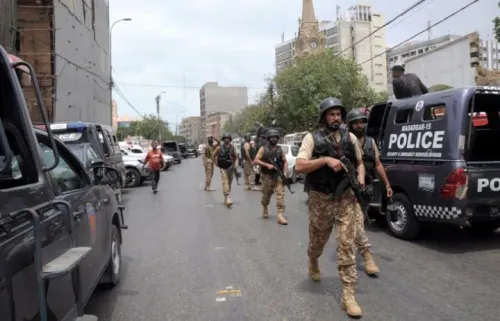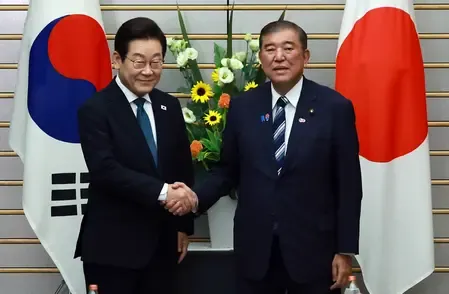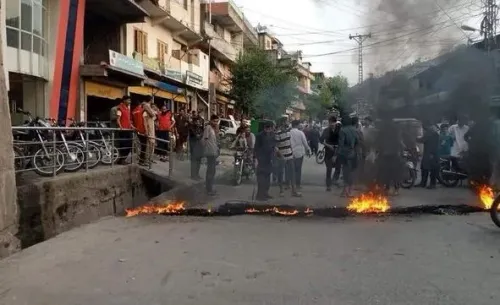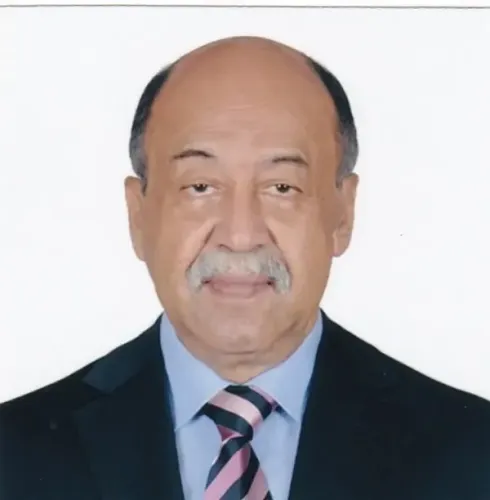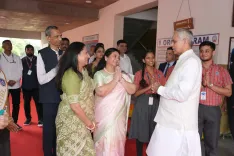Has Nepal's Former King Finally Abandoned His Title After 17 Years?

Synopsis
Key Takeaways
- Former King Gyanendra Shah has shifted his title after 17 years.
- The change aligns with calls for political reform in Nepal.
- The recent Gen-Z protests influenced this decision.
- Speculations arise about the future of the monarchy.
- Political discussions about the monarchy's restoration are ongoing.
Kathmandu, Sep 9 (NationPress) Citizens of Nepal have long been accustomed to official communications from the Secretariat of the former King Gyanendra Shah, referring to him as 'His Majesty the King', despite the monarchy being abolished 17 years ago.
However, late Sunday evening marked a significant change as the former monarch himself announced during the Dashain (Dussehra) festival, which is the most important celebration for Nepal's Hindu community, that he will now be referred to as 'the former His Majesty the King'.
In a statement released from Nirmal Niwas, the residence of the ex-King, Shah urged for timely reforms within the state system, emphasizing the need to respect the sentiments of the populace.
With a new apolitical government established in the wake of the Gen-Z protests on September 8 and 9, the former monarch highlighted the importance of integrating the aspirations and desires of the younger generation into the governance framework.
Many are puzzled as to why the former monarch, who was deposed in 2008, continued to identify himself as 'His Majesty the King' for 17 years, only to suddenly shift to the title of ex-King.
The first constituent assembly of Nepal, created after the 2006 uprising against the King’s rule, had voted to abolish the monarchy in May 2008.
Rajan Karki, an aide to the former King, revealed that the Secretariat had previously conferred with law enforcement to discontinue the title 'Shree Panch Maharajadhiraj' (His Majesty the King).
In July, local police had interrogated Phanindra Pathak, the Communication Secretary of the former King, over the use of the title 'Shree Panch Maharajadhiraj', which is not recognized by Nepal's Constitution, and referred to the office as a 'communication secretariat', also unrecognized by the Constitution.
"The change followed a written agreement from Pathak to refrain from using the title 'Shree Panch Maharajadhiraj', aligning the new statement with this commitment," Karki explained to IANS. "This indicates that the ex-King is prepared to respect the nation's laws and regulations."
He further mentioned that the former King had previously been referred to as 'His Majesty the King' following international conventions regarding the description of former monarchs.
When questioned about the statement, Pathak declined to comment on the recent announcement by the former King.
There are speculations as to whether the abrupt change in the letterhead referring to Shah as the former King relates to the recent political transformations in the country.
Some factions have been advocating for the monarchy's reinstatement, citing the perceived failures of major political parties to guide the nation toward prosperity post-monarchy.
Despite these sentiments, the recent political turmoil in Nepal did not lead to a revival of the monarchy, a hope held by some.
Karki noted that discussions about restoring the monarchy were indeed brought up during talks held at the President's office involving various political entities to address the Gen-Z protestors' demands.
"A message was conveyed to the former King, who replied that he would contemplate the offer if all political parties issued a joint statement advocating for the monarchy's restoration," Karki remarked.
In a recent article with the weekly publication 'Janaastha', former Prime Minister and Chairperson of the Communist Party of Nepal (Unified Socialist), Madhav Kumar Nepal, hinted at discussions concerning the monarchy's potential restoration.
"There was considerable discussion about reinstating the King by compelling the president to resign. As I have learned, there have indeed been some talks with former King Gyanendra Shah regarding this, but he stated he would not return unless the political parties reached an agreement,"
said Nepal.

